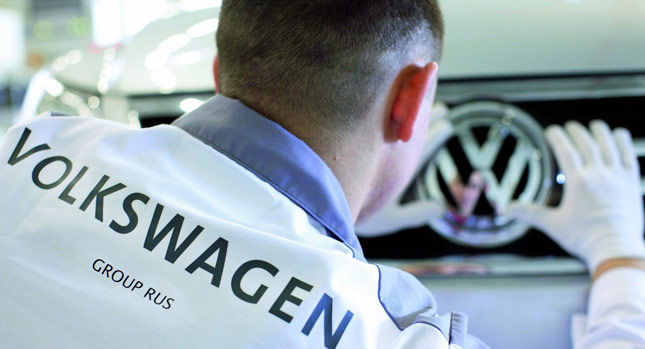They say politics and economic interests go hand in hand, and if that is true, it doesn’t take an expert to realize that the sanctions considered by the European Union on Russia for annexing Ukraine’s Crimean peninsula will be rather symbolic.
Germany’s top automaker Volkswagen said its ambitious expansion plans in Russia are unaffected by the fact that European leaders met to discuss sanctions over the country’s takeover of Crimea.
“I believe we should not scale back our activities in Russia because of this,” VW CEO Martin Winterkorn told Reuters. EU leaders held talks on Thursday about how to sanction Russia and support Ukraine’s stricken economy, as well as how to reduce their countries’ dependency on Russian oil and gas.
Their conclusion? It is too early to move to economic retaliation. German Chancellor Angela Merkel said economic sanctions will be considered “in the case of further escalation”.
It’s not surprising then that VW will go through with its plan to invest €840 million ($1.15 billion) in Russia, its sixth-biggest market, between 2013 and 2015. VW is building a new engine factory in Kaluga, where it already has an assembly plant that makes VW and Skoda models. Europe’s largest automaker wants to boost sales in Russia by more than 60 percent to 500,000 cars, from 303,000 last year.
“Our sales numbers continue to look good, but we’re paying very close attention to what is happening there. Investments are still running; we will not stop the new engine plant,” Winterkorn said.
By Dan Mihalascu
PHOTO GALLERY








